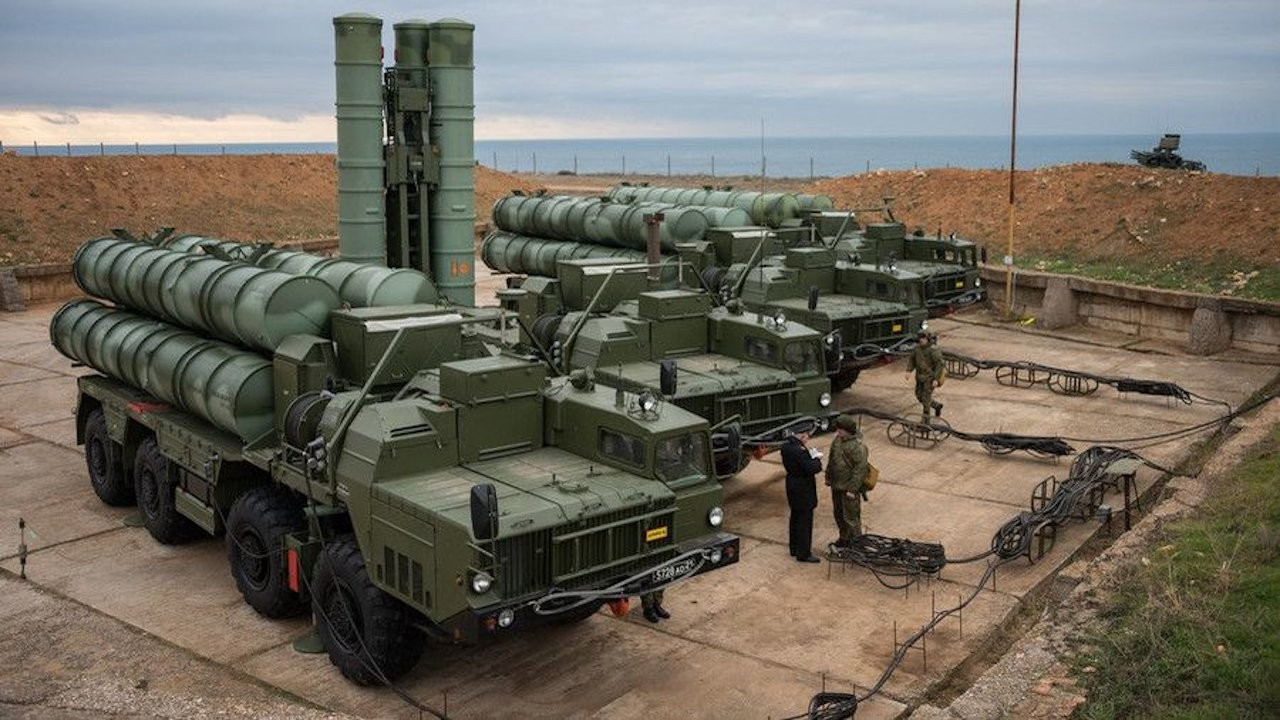US imposes CAATSA sanctions on Turkey over Russian S-400s
The United States has imposed sanctions on Turkey's Presidency of Defense Industries and its president İsmail Demir over the country's acquisition of Russian S-400s. The U.S. has also blacklisted three more Turkish individuals linked to Turkey's Presidency of Defense Industries. Turkish Foreign Ministry condemned the sanctions as a "grave mistake" and urged Washington to revise its "unjust decision."
Duvar English - Reuters
The United States imposed sanctions on Turkey's Presidency of Defense Industries (SSB), its president and three employees, a Treasury website showed on Dec. 14, to punish Ankara over its acquisition of Russian-made S-400 defence systems.
The measures were announced under the Countering America's Adversaries Through Sanctions Act (CAATSA) -- the first time the act has been used against a fellow member of the NATO military alliance.
They include a ban on all U.S. export licences as well as asset freezes and visa restrictions for SSB's president, İsmail Demir, and three other employees.
In addition, SSB will be prohibited from receiving U.S. export licenses, loans greater than $10 million from U.S. banks, assistance from the U.S. Export-Import Bank, and loans from international financial institutions like the World Bank.
U.S. Secretary of State Mike Pompeo released a statement regarding the move, saying the U.S. has made clear to Turkey that its purchase of Russian S-400 missile defense systems would endanger the security of U.S. military technology and personnel.
"Today's action sends a clear signal that the United States will fully implement CAATSA Section 231 and will not tolerate significant transactions with Russia's defense and intelligence sectors," Pompeo said in a official statement released by this office.
"I also urge Turkey to resolve the S-400 problem immediately in coordination with the United States. Turkey is a valued Ally and an important regional security partner for the United States, and we seek to continue our decades-long history of productive defense-sector cooperation by removing the obstacle of Turkey's S-400 possession as soon as possible," he added.
In a separate statement on Twitter, Pompeo said that the United States "will not tolerate significant transactions with Russia's defense sector."
"Despite our warnings, Turkey moved ahead with its purchase and testing of the S-400 system from Russia. Today’s sanctions on Turkey's SSB demonstrates the U.S. will fully implement #CAATSA," Pompeo wrote on Twitter.
Despite our warnings, Turkey moved ahead with its purchase and testing of the S-400 system from Russia. Today’s sanctions on Turkey's SSB demonstrates the U.S. will fully implement #CAATSA. We will not tolerate significant transactions with Russia's defense sector.
— Secretary Pompeo (@SecPompeo) December 14, 2020
Briefing reporters, Christopher Ford, Assistant Secretary of State for International Security and Nonproliferation, said Washington had sought a solution but Ankara rejected all offers.
"This is not a step we've taken lightly or certainly quickly," he said.
Turkish Foreign Ministry described the U.S. sanctions move as a "grave mistake" and said it will retaliate as necessary after it repeatedly called on Washington to solve the issue through dialogue.
The ministry said sanctions were "inexplicable" after Washington repeatedly rejected Ankara's offer to form a joint working group. It called on its NATO ally to revise the "unjust" decision that will harm bilateral ties.
Press Release Regarding the U.S. Decision to Impose Sanctions Against Turkey https://t.co/t7RSTdu81y pic.twitter.com/knfDxxQet4
— Turkish MFA (@MFATurkey) December 14, 2020
SSB president Demir wrote on Twitter that the U.S. sanctions will not be able to hinder the Turkish defense industry in any way.
"Any decision taken abroad towards me or our institution will not change the stance of me or my team," Demir said.
Cumhurbaşkanımız @RTErdogan’ın liderliğinde Tam Bağımsız Savunma Sanayii hedefimizde kararlılıyız.
— Ismail Demir (@IsmailDemirSSB) December 14, 2020
Şahsım veya kurumumuza yönelik yurt dışında alınan her hangi bir karar, benim ve ekibimin duruşunu değiştirmeyecek; Türk savunma sanayiini hiç bir şekilde engelleyemeyecektir.
Erdoğan 'upset' US went ahead with sanctions process
Just ahead of the U.S. announcement, Turkish President Recep Tayyip Erdoğan said the sanctions rhetoric was upsetting. He said that Turkey expects its NATO ally the United States to support it and not sanction it over its purchase of Russian S-400 missiles.
"It is saddening to see the increase in the rhetoric of sanctions against Turkey in both the United States and Europe in this recent period,” Erdoğan said, speaking after a cabinet meeting on Dec. 14.
“We expect support from our NATO ally, the US, in our fight against terrorist groups and elements that have designs on our region, not sanctions," he added.
Meanwhile, Russian Foreign Minister Sergei Lavrov said on Dec. 14 the sanctions which the U.S. has imposed against Turkey were illegitimate and showed arrogance toward international law, Interfax news agency reported.
Russia delivered the ground-to-air S-400s last year and Turkey tested them as recently as October. Ankara said they would not be integrated into NATO systems and pose no threat, and has called for a joint working group on the issue.
But the United States maintained that the S-400 does pose a threat, and announced last year it was removing Turkey from the F-35 fighter jet program over Ankara's decision.

 Erdoğan labels expected US sanctions on Turkey 'disrespectful'Diplomacy
Erdoğan labels expected US sanctions on Turkey 'disrespectful'Diplomacy Trump administration to impose long-awaited sanctions on Turkey over S-400sDiplomacy
Trump administration to impose long-awaited sanctions on Turkey over S-400sDiplomacy